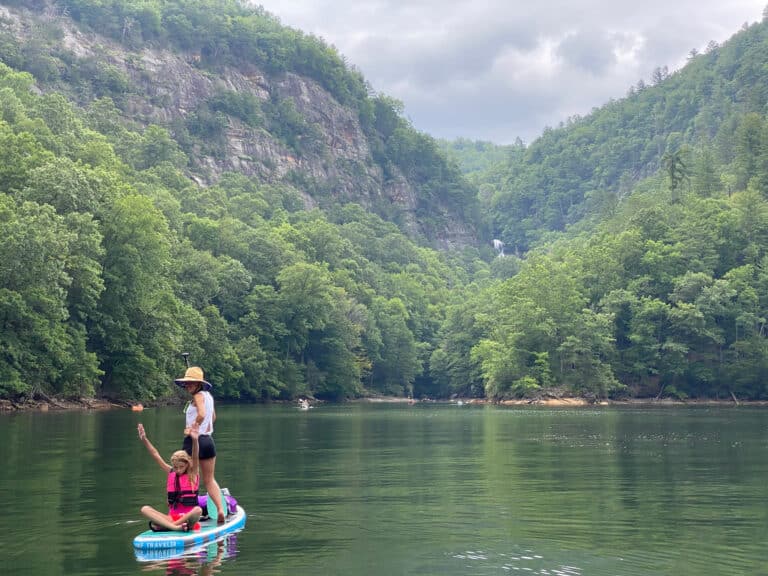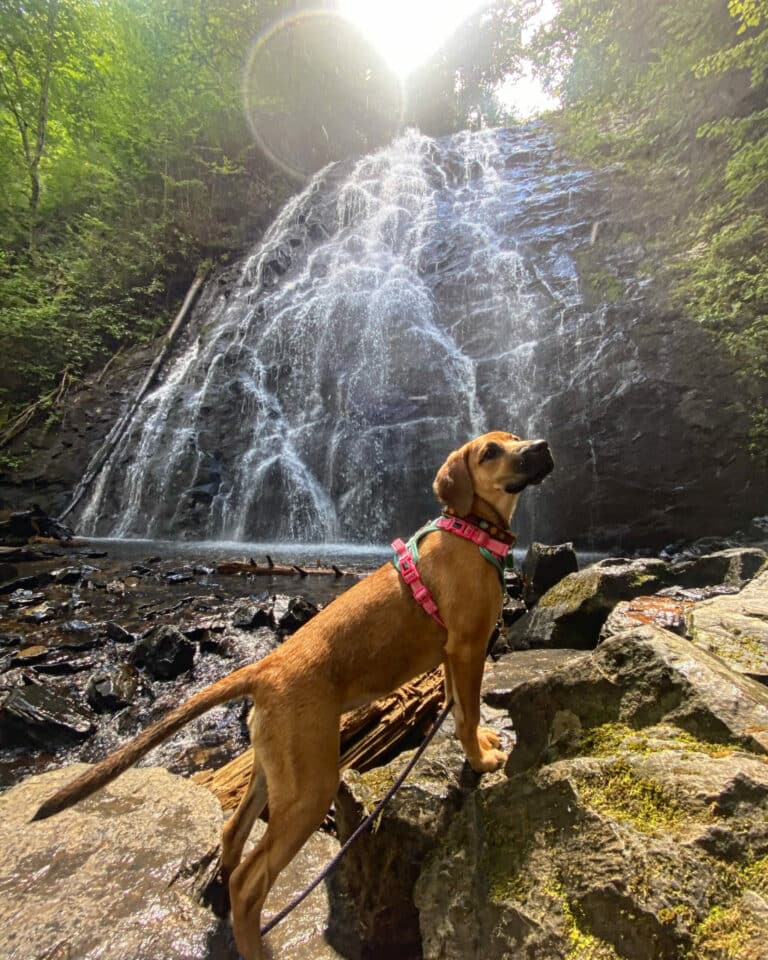Check out these short news updates from the Blue Ridge and beyond!
WIFE CARRY
Virginia Couple Wins National Championship
In October, 60 couples took the starting line at the 18th annual North American Wife Carrying Championships at Sunday River Ski Resort in Newry, Maine. The challenge, based on a 19th century Finnish legend, features men carrying their wives (couples don’t have to be married to compete) across a 278-yard course filled with obstacles, including mud pits, sand traps, and log hurdles. Winning couple Jake and Kirsten Barney, who live in Lexington, Va., finished the race in 58.26 seconds and therefore took home $630 and 12 cases of Goose Island beer. That seemingly random prize was awarded based on Kirsten’s weight in beer and five times her weight in cash. The couple, who finished second in last year’s North American comp, earned a spot to compete in next year’s World Wife Carrying Championships in Finland.

The approximate number of bottle caps students from Susquenita Middle School used to create a recycled-material mosaic at an Appalachian Trail trailhead sign along Route 850 in Perry County, Pennsylvania. The colorful artwork, now being enjoyed by hikers, features an A.T. symbol, along with mountains, trees, and the sun. The effort was spearheaded by a few of the school’s teachers who wanted to increase student awareness of the nearby trail.
CLIMATE CHANGE BITES
Copperhead snake bites have been on the rise in North Carolina this year. In April, the state saw nearly four times the number of bites as in the same month of the previous year. Warmer temperatures are one of the likely causes of increased snake activity.
USED GEAR GOES BIG
Major retailers and manufacturers are now offering vetted used gear at discounted prices. In September, Patagonia unveiled Worn Wear, which allows customers to trade in used, fully functional Patagonia gear for credit towards new purchases. The gear is then cleaned by Patagonia and sold at the Worn Wear website (wornwear.patagonia.com) for a price considerably lower than retail. Also this fall, large-scale outdoor retailer REI launched a Used Gear page on its website, offering gently used items that have been returned at reduced prices. On the site REI stated, “We’re trying this out as a way to help more people get outdoors while keeping useful stuff out of the landfills.”
WAR ON HEALTH
Administration Stops Study of Communities Affected by Coal
By Tom Flynn
On August 18, the Trump administration halted the work of the National Academy of Sciences to study the increased health risks faced by Appalachian residents who live near mountaintop removal coal-mining sites.
Mountaintop removal mining is a method of mining that removes coal from the surface rather than by excavating from beneath it. Massive amounts of rubble, often laced with toxic heavy metals such as arsenic and mercury, are dumped into nearby valley creeks and waterways, polluting the land and water downstream. Another byproduct is the particle-laden dust projected into the air by the heavy explosions required.
The National Academy of Sciences study was examining health risks associated with mountaintop removal mining. Previous research on mountaintop mining’s health impacts found higher risks of cancer, serious illness, and early death among residents living near mountaintop removal sites. Another recent study showed higher birth defect rates near mountaintop mining sites, while still another found higher mortality rates and incidences of kidney and lung cancer in those areas.
“The science is so overwhelming that the only conclusion that one can reach is that mountaintop mining needs to be stopped,” said Dr. Margaret Palmer in summarizing a 2010 analysis that she and other professors at the University of Maryland Center for Environmental Studies completed.
The order to halt the study came just hours before the National Academy of Sciences’ panel conducting the research was slated to hear from coalfield residents.
Mountaintop removal has leveled at least 500 Appalachian mountains, many in southern West Virginia and eastern Kentucky.
A recent appointee of the Trump Administration suggests that this study may not be resumed anytime soon. On October 5, the White House announced that Andrew Wheeler, a former coal lobbyist, will become the newest deputy administrator of the Environmental Protection Agency (EPA). Wheeler was a coal lobbyist until August 11.
YOUR WATERPROOF JACKET MAY BE KILLING YOU
Your tent, sleeping bag, and rain jacket all use perfluorocarbons (PFCs) to repel moisture. PFCs are the same chemicals that poisoned the town of Parkersburg, W.Va., and led to rampant birth deformities. Studies of long-chain PFCs have found their presence to be associated with the disruption of immune and endocrine systems, neonatal toxicity and death, and testicular and kidney cancers.
FORESTS WORTH FIGHTING FOR
National forests in Western North Carolina rank among the most significant lands in the U.S. for their conservation value, according to a recent study in the journal Land. These areas rank higher for their conservation value than 95 percent of all roadless areas nationwide.
Some of the most important areas in Western North Carolina include Bald Mountain, Siler Bald, Panthertown, Nolichucky Gorge, Santeetlah Bluffs, Wesser Bald, the Unicoi Mountains, Lower Snowbird Creek and Big Ivy.
None of these areas have permanent protection, and many are open to logging under the latest preliminary draft of the Pisgah-Nantahala Forest Plan.
The Southern Appalachians have been identified as a critical region for climate change-driven species migrations. A number of species found within these areas are found nowhere else on Earth but remain without formal conservation protection.







